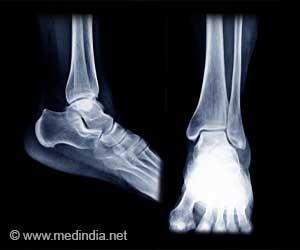Women who are taking birth control pills may show a gradual bone reduction, reveals study published in Journal of Clinical Endocrinology and Metabolism.
Women who are taking birth control pills may show a gradual bone reduction, reveals study published in Journal of Clinical Endocrinology and Metabolism. Impacts on bone were small, depended on the woman's age and the pill's hormone dose, and did not appear until about two years of use. The study size and design allowed the researchers to focus on 14- to 18-year-old teenagers, and to look at how bone density might change when a woman stops using the pill.GHRI Senior Investigator Delia Scholes, PhD, led the study.
Hormones are a key component of bone health, she says, and hormonal contraceptives are a major source of external hormones for women the pill is the most common birth control method worldwide. A woman's risk of fractures later in life is influenced by the bone mass she gains in her teens through her 20s, and this age group has the highest use of oral contraceptives. "The teen years are when women most actively gain bone, so we thought it was important to look at that age group," says Scholes. "We found that oral contraceptive use had a small negative impact on bone gain at these ages, but took time to appear, and depended on hormone dose." The researchers measured hip, spine, and whole-body bone densities in 301 teen women aged 14-18, and in 305 young adult women aged 19-30, all Group Health Cooperative members.
The bone densities of 389 participants using oral contraceptives were compared to 217 similar women who were not using this method, looking at both teens and young adults, and the two most commonly prescribed estrogen doses in pills: 20-25 micrograms and 30-35 micrograms. Bone density measurements were taken at the start of the study, and every 6 months for 2 to 3 years. During that time, 172 oral contraceptive users stopped taking the medication, allowing the researchers to measure bone changes after pill use was discontinued.
They found:
- After two years, teens who used 30-35 microgram pills showed about 1% less gain in bone density at both the spine and whole body sites than teens who did not use hormonal contraceptives.
- For young adult women, users and non-users of oral contraceptives showed no differences in bone density at any site.
- Any differences in bone density between users and nonusers of oral contraceptives were less than 2%, and were seen only after two or more years of use, and only at some measured sites.
- At 12-24 months after stopping, teens who took 30-35 microgram pills still showed smaller bone density gains at the spine than teens who did not use oral contraceptives.
- At 12-24 months after stopping, young adult women who used either pill dose showed small bone density losses at the spine compared to small gains in women who did not take oral contraceptives.
Scholes says additional studies, including looking at bone changes for a longer time after pill use is discontinued, may tell us more about how oral contraceptive use is related to fracture risk. For now, the results of Scholes' study may help women make informed decisions. "Bone health, especially for long-term users of the pill, may be one of many factors women consider in choosing a contraceptive method that's right for them," she says. The US Surgeon General recommends that women maintain bone density by eating foods high in calcium and vitamin D, getting weight-bearing exercise, not smoking, and limiting drinking alcohol.
Source-Eurekalert
















